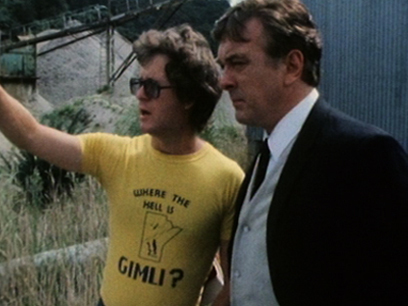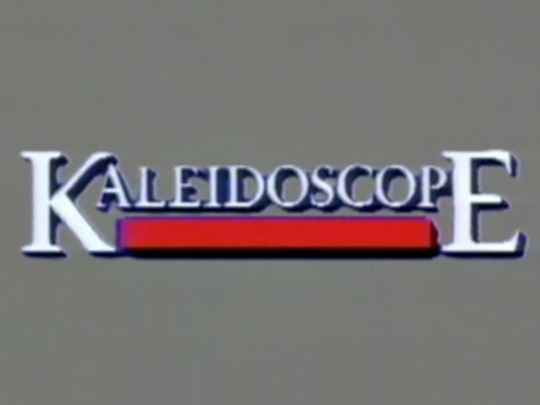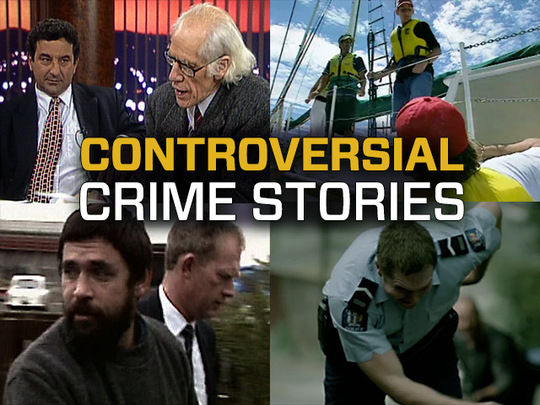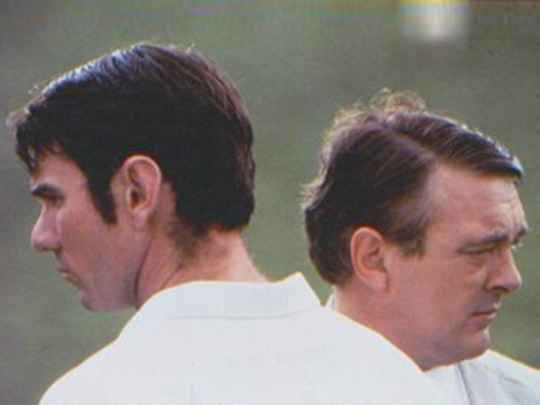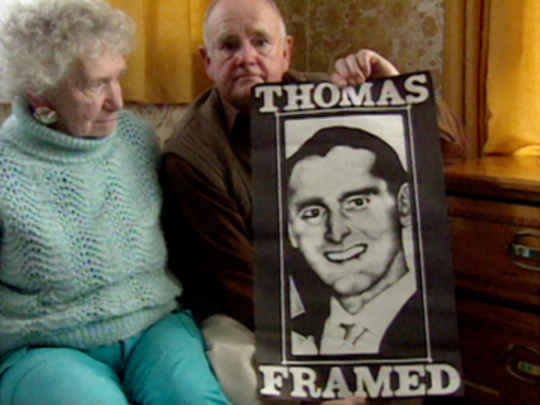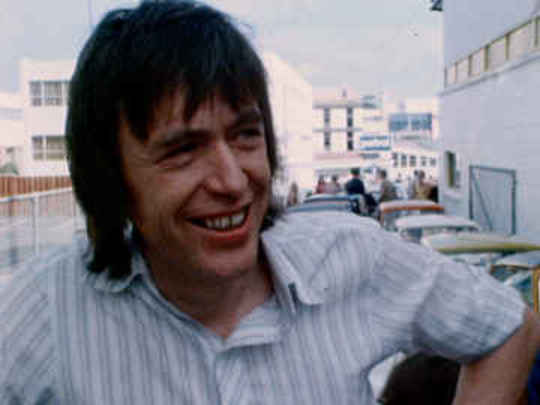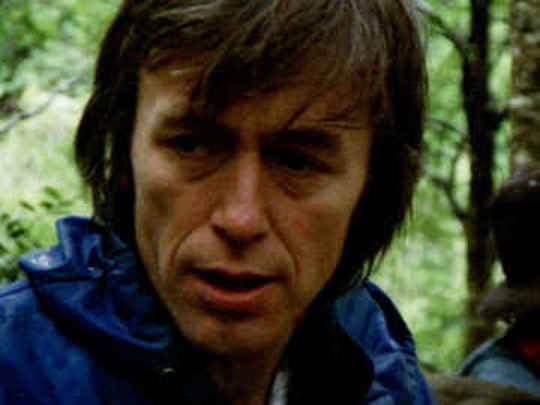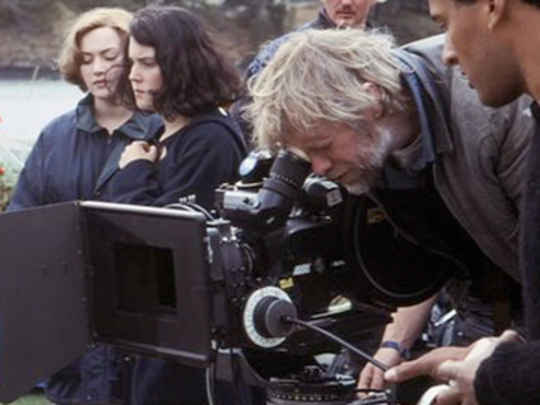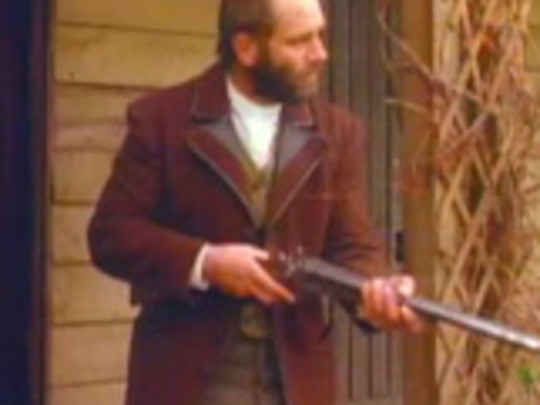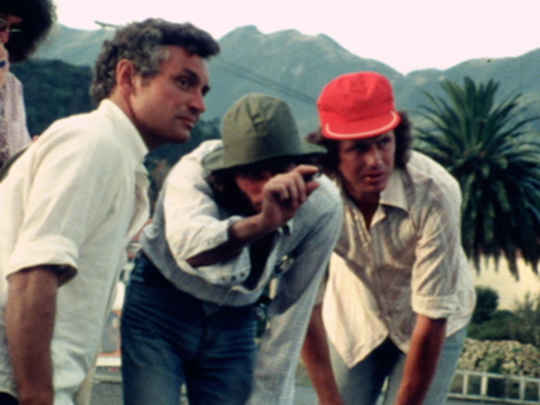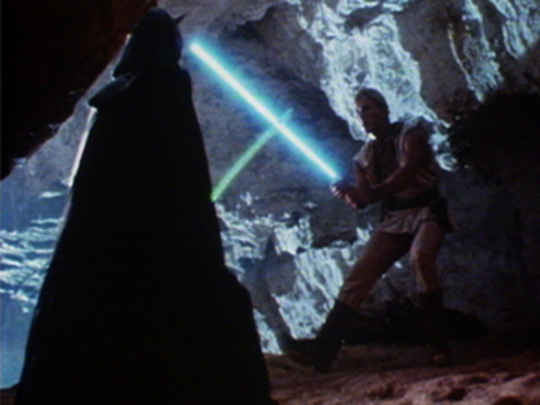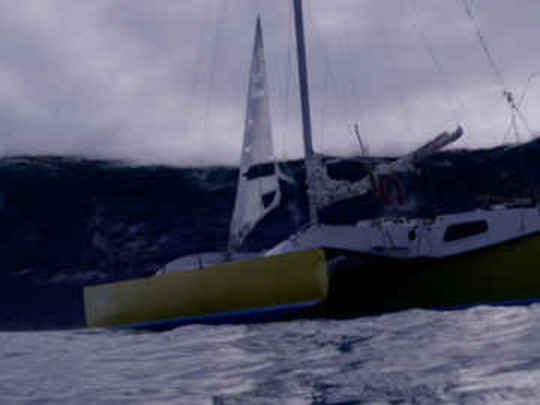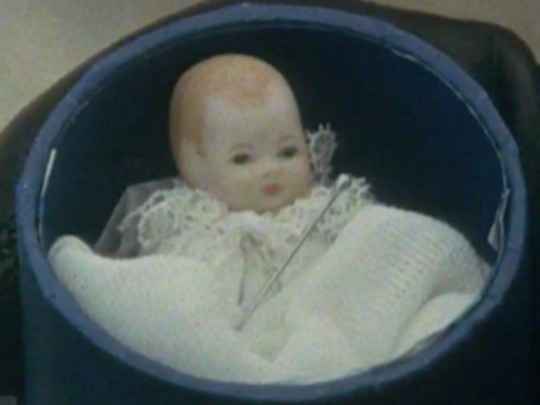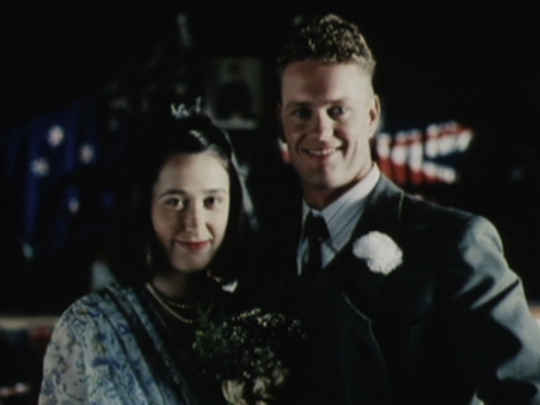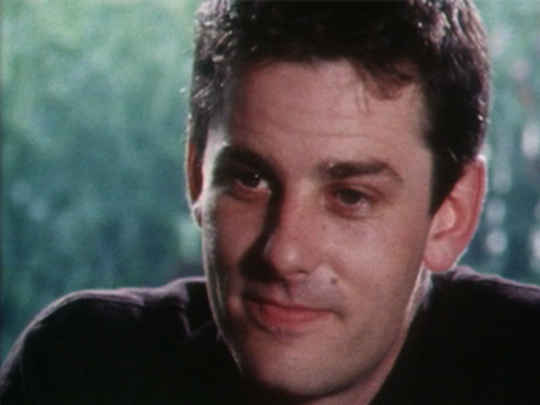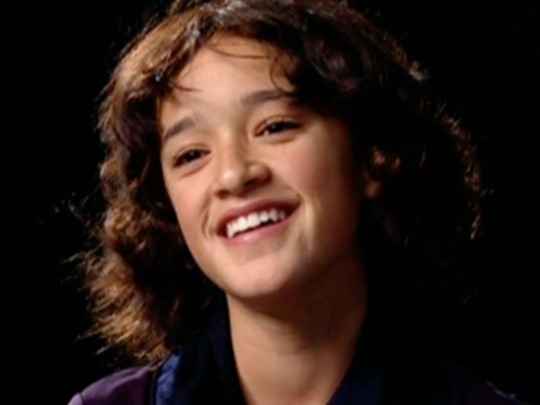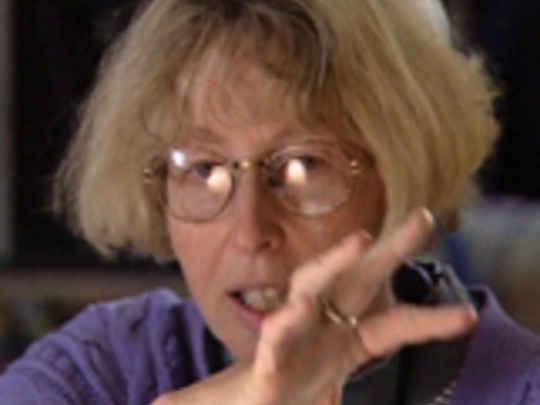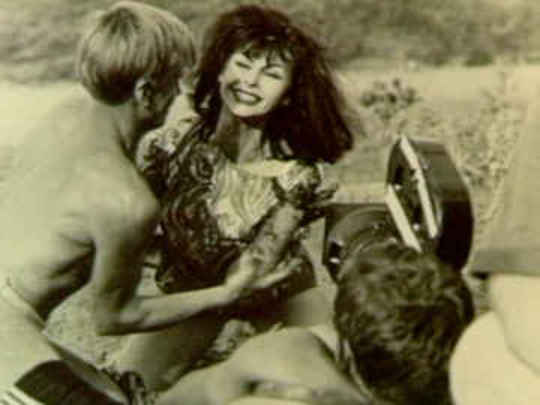Kaleidoscope - Beyond Reasonable Doubt
Television (Full Length) – 1980
Beyond Reasonable Doubt
The 10 May 1980 issue of The Listener carried an article by Phil Gifford, reporting directly from the set of Beyond Reasonable Doubt. The piece was prefaced by a remarkable photograph of actor John Hargreaves next to the man he was portraying: a freshly released Arthur Allan Thomas. They both wear dark suits, white shirts, and ties, and they're both caught with heads thrown back, roaring with laughter.
The resemblance is eerie. But the differences are striking too. The actor seems to be laughing with delight at the ‘peas in a pod' mimicry effected by makeup and wardrobe; Thomas' laughter appears more an expression of hysterical relief.

Not only is his long legal nightmare finally over. Now his public reputation is about to be rehabilitated in front of his eyes. He has been argued about for ten years. Books have been written. There's been an official investigation, a royal commission, and a government pardon. A record compensation payout is around the corner. Arthur Allan Thomas is about to get his life back. But this movie must have been the cherry on top.
The driving force to make this story into a film was entrepreneurial producer John Barnett, who'd been involved with pioneering screen productions like Wild Man and Dagg Day Afternoon. He and his company Endeavour Productions, were ready to do something bigger. The story of Arthur Allan Thomas provided the vehicle.
Thomas was accused of murdering Waikato farmers Jeanette and Harvey Crewe. He was twice convicted, and spent nine years in jail before getting pardoned. British author David Yallop wrote a bestselling book about the case, and this became the catalyst for an official investigation which eventually exonerated Thomas. Yallop would later turn his book into a screenplay.

Australian actor John Hargreaves as Arthur Allan Thomas.
It was a complex case, with an unsolved mystery at its heart. So it was always likely that any resulting movie would steer a long way from genre conventions. The Crewes simply disappeared from their dinner table, on which the remains of a meal of flounder were found. Also in the abandoned house was the couple's baby, and although her parents had been missing for five days, the infant was apparently fed during that period. By whom? And who murdered the parents?
Expatriate Kiwi director John Laing was recruited from the National Film Board of Canada, where he had won international prizes for his work, including co-writing feature The Rubber Gun (previously he'd worked for the BBC in England and — before his OE — for the National Film Unit). His experience as an editor made him ideally suited to handle a multi-layered narrative.
Laing was conscious of high expectations, and the political delicacy of the story. "It was a story that a lot of people in the country wanted to forget about ... especially the government, the police, and the justice system."

Arthur Allan Thomas (John Hargreaves) and Inspector Bruce Hutton (David Hemmings). © South Pacific Pictures.
Between them, Yallop and Laing devised an approach heavily influenced by British television docudrama. Beyond Reasonable Doubt was sober, serious, and meticulously precise in its reconstruction of the events surrounding the case. [watch a behind the scenes documentary on the film here]. Although Laing takes no dramatic liberties with the facts of the story, he and cinematographer Alun Bollinger employ tone and style to strong effect. The mood of Beyond Reasonable Doubt is subdued and flat — it pictures a grey, misty landscape, inhabited by sullen, suspicious people.
Internationally the film's conscious avoidance of genre clichés led to a mixed reception. Screen International's Marjorie Bilow felt that "authenticity is a virtue ... but does not make for mass popularity with audiences conditioned to expect the contrived suspense of crime fiction".

Prosecution lawyer David Morris (Grant Tilly). Arthur Allan Thomas's lawyer Kevin Ryan (Ian Watkin) is at centre. All photos © South Pacific Pictures.
But New Zealand films were a relative novelty at this time, and commentators like England's Dilys Powell were inclined to cut the Antipodean upstarts some slack. Writing for Punch, Powell said, "Not for the first time hope stirs that NZ may be about to join the cinema producing countries. [The film is] admirably made: based on fact, it inspires respect. And it conveys the feeling of its background, a remote community confronted by an enigmatic criminal case." Roger Ebert in the The Chicago Sun-Times described it as a "remarkable film" that "plays like fiction".
When directors were asked to chose the best screening of their films (on the occasion of the 30th anniversary of the NZ Film Commission) John Laing recalled Beyond Reasonable Doubt's screening at the 1981 Chicago Film Festival. "Although the audience knew nothing of the real events, it struck a powerful chord. The audience was passionate. Everyone in the theatre had something to compare it with. I realised for the first time that this little film, particular to New Zealand, had genuine universal appeal."
Beyond Reasonable Doubt was also very well received at home; the real events were notorious and high-profile, and the film drew considerable audiences, intrigued to see one of our stories writ large on the big screen. It built on the box office impact made by Sleeping Dogs three years earlier, and set the platform for breakout hit Goodbye Pork Pie, the next year. Powell's hope for New Zealand cinema was well on the road to being realised.
- Costa Botes has directed features films, short films documentaries, and films pretending to be documentaries.
